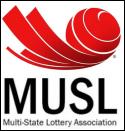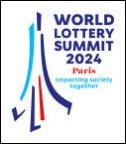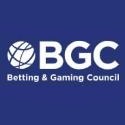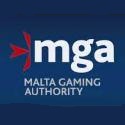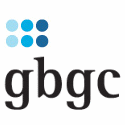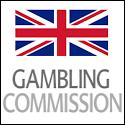Europe Gambling Update: Key Changes and Regulatory Shifts
Finland, Ireland, Italy, Sweden, United Kingdom
Europe (April 28 2023) —This Europe Gambling Update is part of our new ‘Gambling Update’ series. It covers important regulatory changes expected to bring headwinds for multinational online operators over the coming year or so. Operators should be prepared for the proposed new frameworks in Europe, and the tightening of existing ones.
Italy
The online gambling regulatory framework in Italy features a comprehensive local licensing system under the Agenzia delle Dogane e dei Monopoli (“ADM”). Licensed operators are permitted to offer fixed-odds betting on sports, virtual events, casinos, poker, and skill games, among others. Licenses are issued via a tendering system with calls for tenders published periodically.
Since 2018, the sector’s growth has been impacted by a complete ban on advertising encompassed in a piece of legislation better known as the “Dignity Decree”, which prohibits direct and indirect gambling-related advertising, including sponsorships and commercial ads in both print and online formats. Currently, there are less than 100 online gambling operators licensed in Italy.
A new tender for 40 remote gambling licences was initially expected to be announced by 31 December 2020 (Article 727 of the Budget Law 2020), but it was postponed. The tender remains on the agenda, initially set to be in the form of a bidding process starting at €2.5 million. However, rumours suggest that the government may plan to increase the tender to 50 licences, with the bidding process starting at €4.5 million.
The new licence tender is unlikely to be called until at least 2024, and considering this, all incumbent licences were extended until 31 December 2024, subject to payment of a 15% extension fee on an annual basis. Given these circumstances and the uncertainty still surrounding the actual timing of the next licence tender, some operators willing to enter the Italian market beforehand may have an appetite to acquire an existing licence rather than waiting for the upcoming tender, which could face further delays. Indeed, the best-case scenario entails ADM calling the tender in Q1-Q2/24, which means that the new licences will not be issued before the end of 2024. Considering then that the average go-live time ranges between 6 and 9 months, it is very unlikely that any new licence will start trading before Q3-Q4/25.
On 1 February 2023, a proposal for a parliamentary inquiry into illegal gaming was submitted to the Italian Parliament. A special committee is expected to be formed to conduct the inquiry and recommend measures to clamp down on operators offering their services unlawfully to persons in Italy. Italy currently enforces measures to combat illegal gambling, with a list of blocked websites updated monthly. The country also issues orders against payment institutions and Internet Service Providers servicing illegal operators and reserves the right to impose fines ranging from €300,000 to €1.3 million for each violation.
The Italian gambling update was written in collaboration with Tonucci & Partners.
United Kingdom
The United Kingdom (“UK”) has long been recognized as one of the world’s most competitive gambling markets, known for its comprehensive and sophisticated regulatory framework. At its core is the Gambling Act 2005, which established the Gambling Commission of Great Britain and set out the principles for regulating gambling activities.
On 27 April 2023 the UK Government published a white paper on gambling reform (“White Paper”), which presents a series of restrictive proposals blaming online slot machines for being a “particularly high-risk product”.
The White Paper suggests a consultation on stake limits of between £2 to £15 for online slots and lower limits for 18 to 24-year-olds, who “may be a particularly vulnerable cohort” with exact figures to be determined later. The consultation regarding limits for younger gamblers will encompass alternatives such as a £2 cap per spin, £4 cap per spin, or a strategy tailored to each person’s risk level. Culture Secretary Lucy Frazer said that the government intends to perform better to “protect children” by “ensuring children can do no forms of gambling, either online or on widely accessible scratch cards“.
The white paper also proposes a tiered system of affordability checks, with individuals losing over £125 per month or £500 per year being subject to evaluations regarding bankruptcy filings or county court judgements.
For gamblers losing £1,000 or more in 24 hours, or £2,000 within 90 days, the document suggests extensive banking and income assessments.
The white paper also recommends the revision of the Gambling Act 2005 claiming it as “outdated” since it was “introduced when smartphones weren’t part of our lives”. Therefore, it suggests new restrictions on online and smartphone gambling while also addressing land-based gambling.
Overall, it seems that operators may face tougher restrictions in the near future since UK lawmakers demand the government to urgently implement the amendments discussed above in the Gambling Act 2005.
Finland – converting to a liberal licensing system?
Finland’s gambling legislation grants state-owned monopoly operator, Veikkaus, the exclusive right to offer gambling services in the country, including online services. This has been the status quo since 2001, with previous suggestions to change the system being met with a frosty reception.
Veikkhaus holds an iron grip on gambling in the country and has only recently acknowledged that it’s time to take a fresh look at Finland’s gambling framework.
This admission was spurred by offshore gambling now taking close to 50% of the total online gambling market share in Finland, with offshore operators consistently gaining market share.
A report published by Finland’s Ministry of the Interior and published on 17 April 2023 recognises that Finland either needs to consider a liberal licensing system or further enforcement measures to prevent unlicensed online gambling.
Payment blocks, introduced at the start of 2023, have had some effect on reigning in the continuous growth of the offshore market. However, Finland recognises that this is not a perfect solution.
At the time of writing, a Malta Gaming Authority licensed operator is being investigated by Finland’s National Police Board for “large-scale” marketing to Finnish consumers, with it being explicitly accused of sending unsolicited promotional messages to minors. There are clear indications this spring that the National Police Board has been more active in supervising gambling marketing than ever before in its history.
Significantly, the winners of Finland’s recent parliamentary elections support the plan to dismantle the monopoly system in favour of a licensing system.
Veikkhaus is unlikely to be disbanded if a liberal licensing system is introduced. It is likelier that its ownership and structure would be reorganised to make it compliant with any upcoming framework. Hopefully, this would result in an equal and fair competitive landscape for all operators.
There are indications, though this is by no means certain, that a licensing system will be introduced in Finland by 2025; catalysts for delays could be the above-mentioned reorganisation of Veikkhaus, and prolonged consideration of how to deal with problem gambling concerns in the context of a liberal licensing regime.
Ireland – rethinking and updating its gambling laws
Ireland currently only has licensing regime for remote bookmaker licences and remote betting intermediary licences, whereas online lottery games are under a private monopoly with the Betting (Amendment) Act 2015 and the Gaming and Lotteries (Amendment) Act 2019 serving as the key pieces of legislation governing the online gambling industry.
However, it seems that the Irish online gambling regulatory framework is about to change. In December 2022 the Irish government tabled Gambling Regulation Bill 2022 (“Irish Gambling Bill”) in parliament, which in early April 2023 was sent to the European Commission for its mandatory review.
This notification comes with what is known as a “standstill period”, which expires on 5 July 2023. During this time, the European Commission and fellow Member States have the opportunity to scrutinise the proposed legislation and submit their feedback as necessary. This period allows for a comprehensive review of the Bill, ensuring that it aligns with the interests and standards of the European Union.
The Irish Gambling Bill provides for the establishment of a Gambling Regulatory Authority of Ireland, an entity that would oversee gambling licences and regulations within the country.
The Irish Gambling Bill also sets out the obligations and expectations for licence holders and other stakeholders with respect to advertising, and promotion.
Although the Irish parliament can still propose amendments to the Bill, it is expected that this law will come into force either at the end of 2023, or in early 2024.
Sweden
Sweden first regulated online gambling operators under the Gambling Act on 1 January 2019; to date, the tight regulations have resulted in a significant market of offshore operators which continue to take bets from the territory; in most cases, avoiding the use of the local currency (Krona) and language to avoid contention with the Swedish Gambling Authority (“SGA”).
Offshore operators justify taking bets from the territory under the premise of reverse solicitation, which means “where a prospective client seeks services at their own exclusive initiative”. The element of reverse solicitation is outside the scope of the Gambling Act which states “online gambling […] is not directed at the Swedish market shall not be considered to be provided in Sweden”.
In response to the significant activity of operators unlicensed in Sweden, the SGA was granted the power to order payment service providers to block payments to and from unlicensed operators. Furthermore, internet service providers can be ordered to display a warning message to visitors regarding unlicensed activity and maintain a blacklist of sites.
Enforcement has for the most part been limited to entities that are specifically targeting Swedish players via the use of local currency and language. A 2021 report by Gunnar Larsson, Director General of the Swedish Chamber of Commerce proposed to empower the SGA to block all forms of unlicensed gambling, targeted or not.
However, the proposals were scrapped after an administrative court maintained it was not clear on the legality of such changes and furthermore, the Public Prosecutors Office stated it would be very difficult to investigate and prosecute extra-territorially.
Since 2019 the market has matured with the SGA now deeming it’s time to regulate B2B providers, which would in turn require providers to obtain a licence to service B2C operators with their products. The licence is valid for up to five years with the annual supervision fee levied by the SGA yet to be decided. Requirements are set to include the technical gaming system being based in Sweden with exemptions for adequate remote access or recognition of another authority’s oversight. Providing the licensed entity maintains an official physical presence in the European Economic Area (the “EEA”) it is not obliged to have a physical presence in Sweden aside from a representative who is a local resident.
From 1st July 2023, a licence is required for any entity that “manufactures, supplies and/or changes online gaming software”. The term “software” can cover many examples such as streaming solutions, random number generators (“RNG”) generators and software for recording gambling transactions among others. The new amendment’s scope requires that the operator of the software and the manufacturer need a licence in order to undertake the respective business activities, however, the manufacturing of games usually involves several parties, and the determining factor for which party requires a licence is predicated on where the final control of the development of the product is located and which party has ultimate ownership of the software.
The industry in general has welcomed the introduction of software licences with the hope that it will reduce illegal gambling in the country. On the contrary, the secretary-general of the Branschföreningen för Onlinespel (“BOS”) trade association recently stated that the SGA’s expectations of how useful it will be in tackling offshore gaming may be too high “the area of application is the same as before and after the introduction of the B2B permits, which in plain language means that in Sweden, unlicensed B2C operators can still accept Swedish customers as long as the operator in question is not considered to target Sweden”.
B2B providers which wish to continue servicing licensed B2C operators should ensure they take immediate measures to obtain the licence with 1 July 2023 fast approaching, as after this date, licensed operators will no longer be able to offer unlicensed B2B services.
Article was written by: James Scicluna, Joseph Borg, Robert Zammit, Laurence Alexander and Galyna Podoprikhina.
SOURCE: WH Partners
Tags: Italy, Ireland, Sweden, United Kingdom, Europe Gambling, Key Changes and Regulatory Shifts, Finland



















